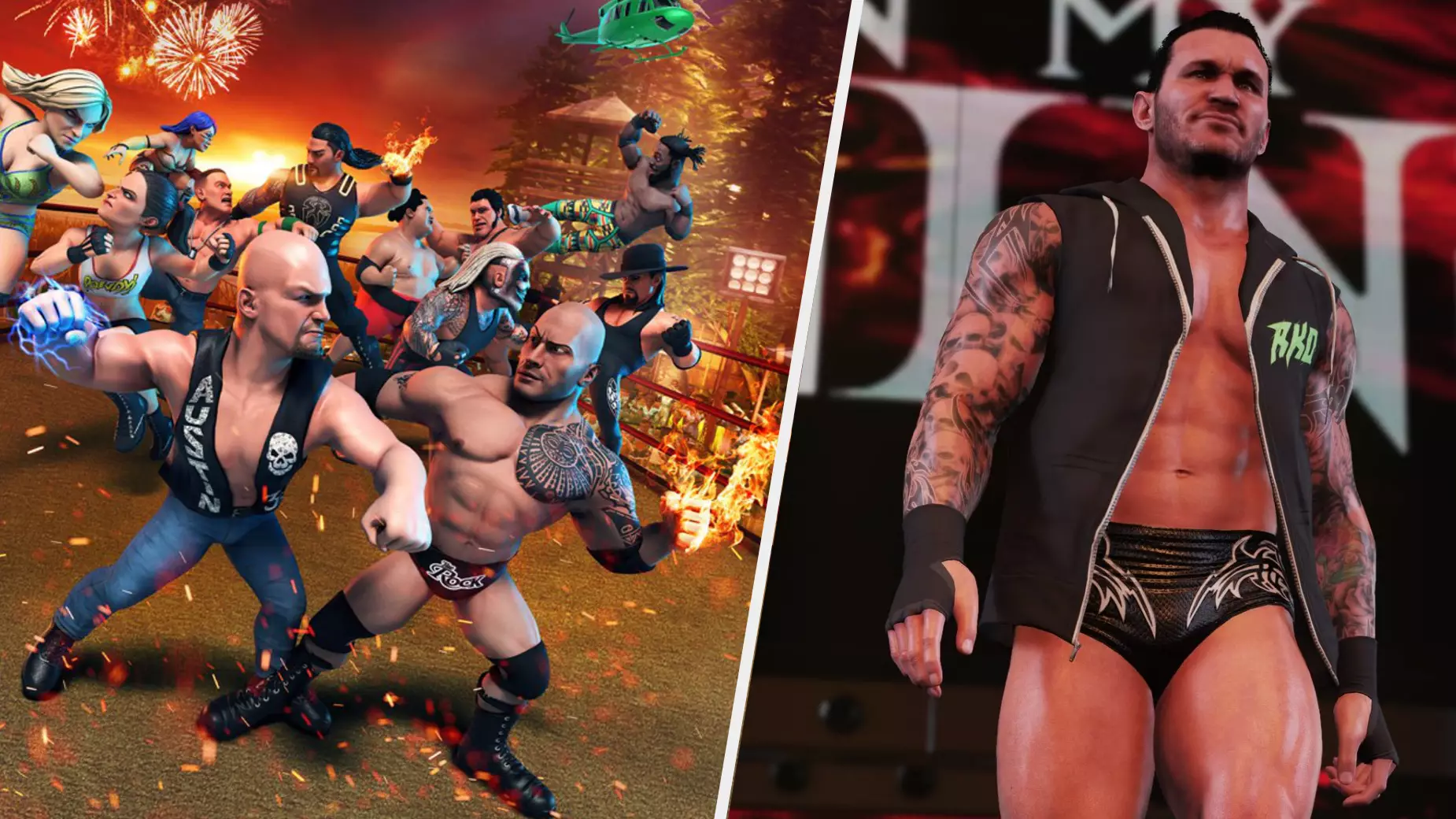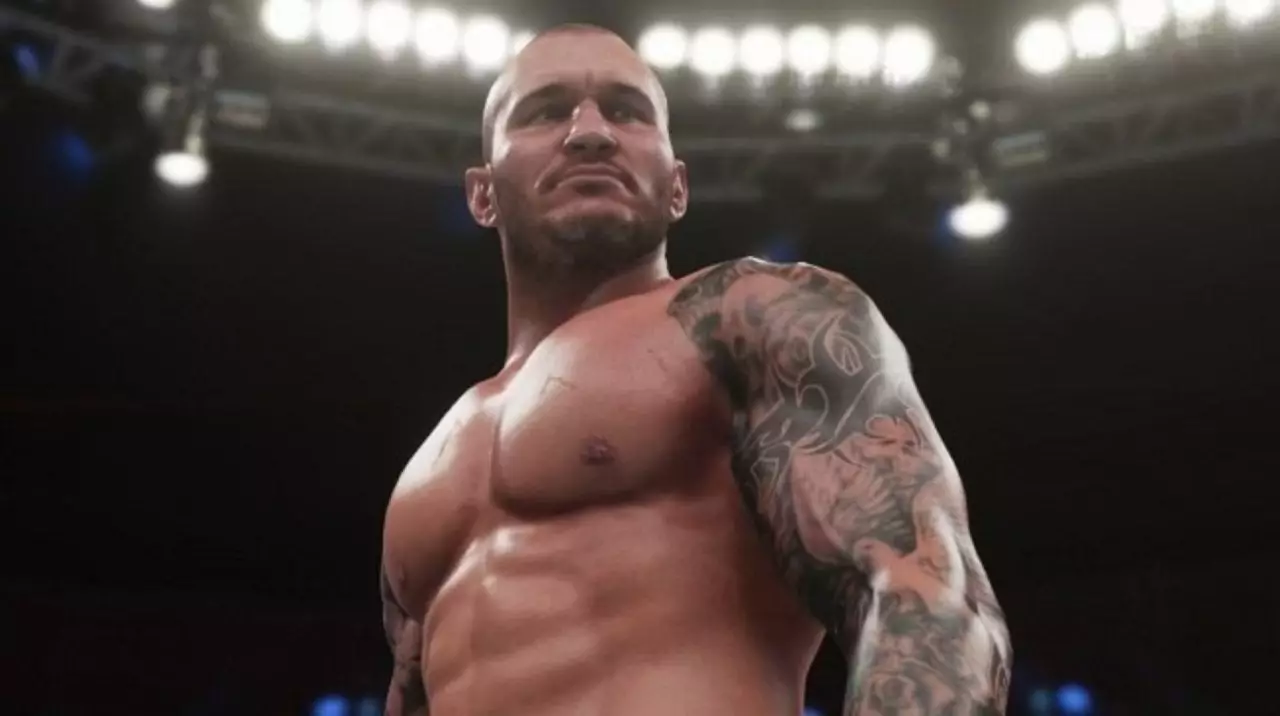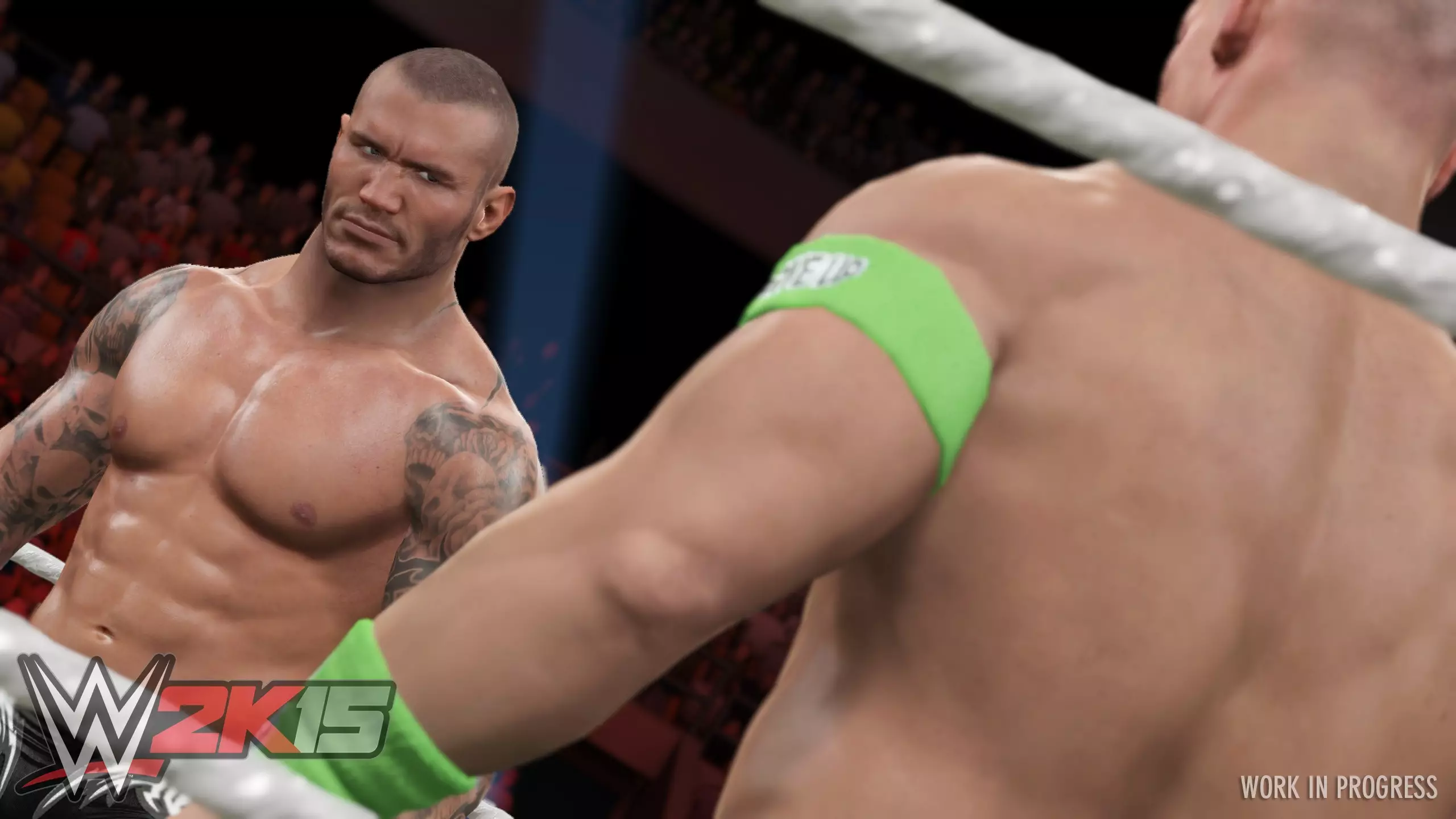
Tattoo artist Catherine Alexander is suing WWE and Take-Two Interactive Software over the use of her designs on the character of Randy Orton in the series of WWE games.
Over the weekend, an Illinois federal judge issued a partial summary judgment, and found that Alexander's work had been reproduced in the games without her prior authorisation. As a result, the jury will determine whether this is copyright infringement, and this will be the first copyright trial ever to be about tattoos. "The defense has been successfully invoked to allow copying of a small and usually insignificant portion of the copyrighted works, not the wholesale copying of works in their entirety as occurred here," described U.S. District Court Judge Staci Yandle.
Orton's first appearance in the games was in WWE SmackDown! Shut Your Mouth, released in 2002. He had fewer tattoos then, and the hardware didn't render detail very intricately. This is a diplomatic way of saying that WWE SmackDown! Shut Your Mouth's Randy Orton looked a lot like every other video game character in the early 2000s. However, as technology has advanced over the past eighteen years, WWE 2K titles have been able to reproduce the likenesses of wrestlers much more accurately, and this is where WWE and Take-Two land in hot water.
Advert

"It is unclear whether Alexander and Orton discussed permissible forms of copying and distributing the tattoo works or whether any implied license included sublicensing rights such that Orton could give permission for others to copy Alexander's tattoo works," continued Yandle. In short, Orton didn't get a license for the six tattoos that Alexander inked, because it was not communicated to him that he would need one. Ergo, there is "a triable issue of fact as to the existence and scope of an implied license," but, the defendants' are not able to use this in their favour.
This isn't the first instance of Take-Two contending with the courts when it comes to the virtual representations of real people. In 2019, it successfully stood its ground after Solid Oak Sketches claimed copyright ownership of the tattoos on LeBron James, Kenyon Martin, and Eric Bledsoe in the NBA 2K series. The judge ruled that the use of the designs in the game was de minimis, which means that the similarity between the virtual and the real tattoos was not significant enough to be deemed infringement.

Advert
Nevertheless, it looks like history won't be repeating itself here. It will be interesting to see the outcome of the lawsuit, especially with Take-Two's NBA 2K21 on the horizon.
Featured Image Credit: Saber Interactive, 2K Games, WWETopics: Take-Two